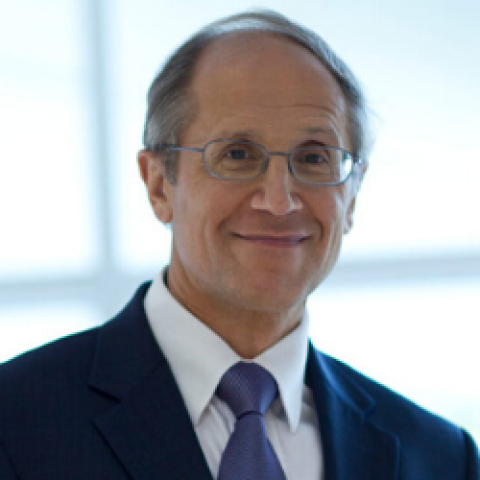Dear Colleagues,
As we begin the new year, I have been reflecting on some insights Francis Collins, director of the National Institutes of Health
(NIH) for the past 12 years, shared during a recent interview with NPR about his frustration with tribalism and its impact on understanding and accepting medical information.
"I don't think I anticipated the degree to which the tribalism of our current society would actually interfere with abilities to size up medical information and make the kinds of decisions that were going to help people."
While this quote focuses on vaccine hesitancy, Collins's commentary can be applied to all aspects of dissemination of medical discoveries, as well as efforts to impact social determinants of health and appreciation by our community, legislatures and the public at large, of the incredible medical discoveries made on a weekly basis.
His reflections struck me as a profound appreciation of the complexity of the NIH's effort to disseminate medical information to benefit our community. And it helps explain the sharp shift to community-oriented research for the upcoming renewal of the Clinical and Translational Science Collaborative (CTSC), the emphasis of population and community scientists on the National Cancer Institute Board of Scientific Advisors and the shift to population and prevention research across the NIH.
So, where does that lead us at the medical school?
May I suggest we enter into an extended conversation on this topic:
- What is tribalism?
- How does it impact our population and community research?
- Does tribalism impact accrual to, and conduct of, clinical investigation and clinical trials?
- Is tribalism bad; will it go away?
- Do politicians push tribalism as an anti-information, anti-reasoned, anti-fact-based populism, or rather is this a recognition we are all part of a (many) tribes, which influence how we address questions and new information (our individual and collective world view)?
To me, tribalism coexists with humanity—and is reflected in our earliest writings, including The Bible, Quran, The Odyssey, Theodicies, and on. I wonder what your thoughts might be and how it influences how we influence society in our work in medical care, medical education and research?
Perhaps we have used our efforts "to discover" to take the reins away from myth and story and the comfort of our small cluster, only now to share Francis Collins's revelation. Discovery (basic and clinical) is not enough; dissemination is not enough—telling is insufficient.
Let me suggest that we further engage in our discovery research mission to listen to our community and discuss those discoveries with our community, and plan to change our approach to teaching and discovery (as in changing that specific aim page of every R01 after community input).
After those conversations—with a concerted effort to understand how our work will be received by that "tribe next door" and how relevancy to those tribal interests will enable our work and improve its impact and acceptance. And in so doing, perhaps we can reflect on how our own tribal background influences us.
It is, after all, our mission: "To improve global health by linking research to populations in a superb educational environment." We can do better and more thoughtfully engage the communities we serve.
Perhaps Francis is right—tribalism thrives, especially in times of change and threat. The onus is not to complain, not to be surprised but to absorb this reality in our work and mission.
Food for thought.
Happy New Year,
Stan Gerson, MD
Dean and Senior Vice President for Medical Affairs
School of Medicine, Case Western Reserve University
Director, Case Comprehensive Cancer Center (acting)
Director, National Center for Regenerative Medicine


